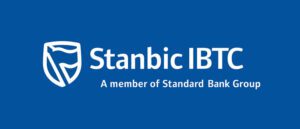
Nigeria’s inflation rate to rise to 22.2% year-on-year — Coronation Merchant Bank
Coronation Merchant Bank has forecast a year-on-year increase in Nigeria’s inflation rate to 22.2% ahead of the release of the National Bureau of Statistics’ August inflation report.
Ms Chinwe Egwim, the bank’s chief economist, stated this on Wednesday during a panel discussion at the Chartered Institute of Bankers of Nigeria’s (CIBN) 15th Annual Banking and Finance Conference in Abuja.
The National Bureau of Statistics (NBS), stated that Nigeria’s headline inflation rate increased to 19.64% on a year-on-year basis in July. This means that in the month of July 2022 the general price level was 2.26% higher than in July 2021. On a month-on-month basis, the headline inflation rate in July 2022 was 1.817%, which was 0.001% higher than the rate recorded in June 2022 (1.816 %).
Egwim said, “Now, from our vantage point at Coronation, looking ahead in Nigeria, we expect further upticks in headline inflation. Our end-year forecast has inflation hitting 22.2 per cent on a year-on-year.
“This projection took into consideration modest increases in the month-on-month inflation. Our forecast is also influenced by structural issues impacting the cost of doing business such as insecurity and the impact of the Russia-Ukraine crisis on the economy.”
She also stated that the naira will see a surge in circulation at the end of the year, as this would be the peak of electioneering for the 2023 elections.
According to her, this is likely to cause some level of demand-pull inflation, as opposed to the existing cost-push inflation.
“Based on our model, headline inflation should moderate to about 17.28 per cent in 2023 and then it should maintain a downward trajectory to 11.35 per cent by 2025.
“We assume that the ongoing crisis would cease or that a workable solution to supply-side shocks and severe cost push inflation would be implemented, in addition to other assumptions,” she said.
On economic diversification, which includes non-oil exports, Egwim stated that if Nigeria’s non-oil export potential was maximized, a 2% increase in non-oil GDP could be achieved on a quarterly basis.
According to her, the 2% prediction excludes any major contractions in oil GDP or assuming that GDP maintains at its current level, as well as assuming that oil prices remain at or exceed 70 dollars per barrel.
She said, “Overall GDP can hit double-digit if we see a two per cent growth on a Q-on-Q basis and if we impose that across quarters, dragging all the way to 2025. We can see it hit as high as 11.25 per cent and a doubling essential if we are going to achieve inclusive growth, which is important to tackle the poverty levels that we are currently seeing.
“To support this diversification towards non-oil, banks can contribute in many ways, like accelerating the drive around sensitisation programmes, fairs and campaigns. This will help micro small and medium-sized businesses equip themselves with tools to enhance their eligibility with regards to gaining access to finance or gaining access to business expansion support.”
According to Egwim, it is crucial to maximize Nigeria’s non-oil export potential in light of the most recent foreign trade statistics made public by the NBS.
She claimed that in the first half of 2022, non-oil exports made up barely 26% of all exports.
She cited obstacles, a lack of infrastructure, and the caliber of present export goods as concerns affecting non-oil export growth.
Other problems, according to Egwim, involved production value chains and the value addition of certain export goods, particularly in the agriculture industry.



